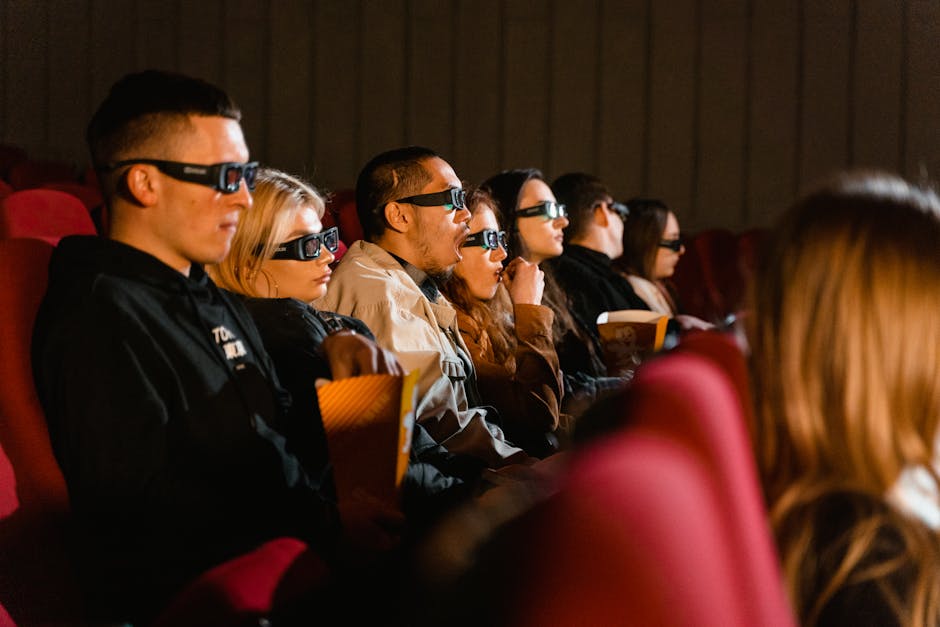Film and television are rich, diverse mediums. Their power lies not just in the visual spectacle, but in the narratives they weave. These narratives, however, aren’t born in a vacuum. Genre, a crucial component of cinematic and television storytelling, dictates plot structures, character archetypes, and even thematic explorations. Understanding how different genres influence storytelling unveils the underlying frameworks shaping our viewing experiences.
A genre’s impact permeates the very essence of a story. Consider the thriller, for instance. Its defining characteristicssuspense, tension, and a looming threatare often employed to build a narrative around the unfolding mystery. This genre fosters a particular kind of engagement from the audience, who are actively invested in deciphering the plot and anticipating the next twist. The predictable elements of the thriller, such as the cat-and-mouse game between protagonist and antagonist, can serve as a blueprint, guiding the narrative structure while leaving room for unique creative expression within the genre’s constraints.
Western narratives, another prominent example, are often built around themes of individualism, frontier life, and the relentless struggle against nature. This established framework frequently features iconic tropes like the lone gunslinger, the ruthless outlaw, and the arduous journey across the wilderness. The genre, therefore, influences the very landscapes portrayed on screen, shaping character motivations, and establishing a specific narrative environment. A Western film, through its inherent conventions, might tell stories about perseverance, redemption, and the complex moral landscapes of a rapidly changing society.
Science fiction, conversely, often serves as a playground for exploring the potential and perils of scientific advancement. This genre typically ventures into uncharted territories, both literally and figuratively. Whether exploring utopian societies or catastrophic futures, science fiction stories frequently examine humanity’s relationship with technology and its impact on societal structures. A defining element is the willingness to question established norms and expectations, thus using the genre’s imaginative framework to delve into profound philosophical ideas. Indeed, a science fiction film might grapple with themes of artificial intelligence, existentialism, or the nature of free will.
Romance, as a genre, is a masterclass in emotional storytelling. It relies heavily on the development of intimate connections between characters. The tropes associated with romance often revolve around finding love, overcoming obstacles, and the pursuit of happiness. Though seemingly simplistic, this genre allows for a nuanced exploration of human emotion, employing techniques like character development and emotional resonance to build a deep connection with the audience. The archetypal love story can, surprisingly, serve as a powerful vehicle for examining societal norms and expectations, revealing the complexities of interpersonal relationships.
Drama, a vast and versatile genre, often tackles serious themes and explores complex human experiences. While lacking the overt conventions of other genres, it still relies on plot structure, character arc, and emotional depth. The dramatic genre, therefore, lends itself to exploring various social issues, from the struggles of marginalized communities to the intricacies of personal relationships. A well-crafted drama film may use the genre’s inherent ability to provoke reflection to examine societal issues, highlight individual suffering, or promote empathy. A film or television series labeled “drama” can range from introspective meditations to explosive societal critiques.
The interaction between genres is also important. Hybrid genres, for example, often emerge as a result of the convergence of various storytelling conventions. A film blending action and science fiction could explore themes of heroism in a technologically advanced world. A romantic comedy, by incorporating elements of lighthearted banter and humorous scenarios, might utilize tropes associated with both romance and comedy to create a particular blend of emotional and comedic engagement. This blending, in itself, influences the narrative choices. Hybrid genres are not simply a combination but a dynamic interplay, prompting filmmakers to create innovative and compelling stories.
The impact of genre extends beyond plot structure. It influences character design. A superhero movie, for instance, generally features a protagonist with extraordinary abilities and a clear moral compass. The very design of the hero, with their powers and motivations, is dictated by the expectations of the superhero genre. Similarly, the character motivations in a crime drama are often driven by a desire for revenge or a fight against injustice.
Additionally, genre constraints can inadvertently lead to creative ingenuity. A filmmaker working within the conventions of a specific genre must find unique ways to subvert or twist those conventions. This pressure often fosters creativity, leading to original interpretations and unexpected outcomes. A filmmaker might create a horror film with a surprising twist, or a Western film with a tragic undertone. This drive for novelty within a familiar structure is often what defines a successful film or television series within a given genre.
In conclusion, genre functions as a powerful force in shaping narratives within the film and television industries. From the plot structures and character archetypes to the thematic explorations, genre influences every facet of the storytelling process. Understanding these influences allows us, as viewers, to appreciate the nuanced ways in which narratives are crafted and presented. Ultimately, the interaction between genre and story leads to a diverse and evolving cinematic experience, prompting a constant dialogue between the constraints and freedoms afforded by established conventions and the inventive spirits that constantly push narrative boundaries.
